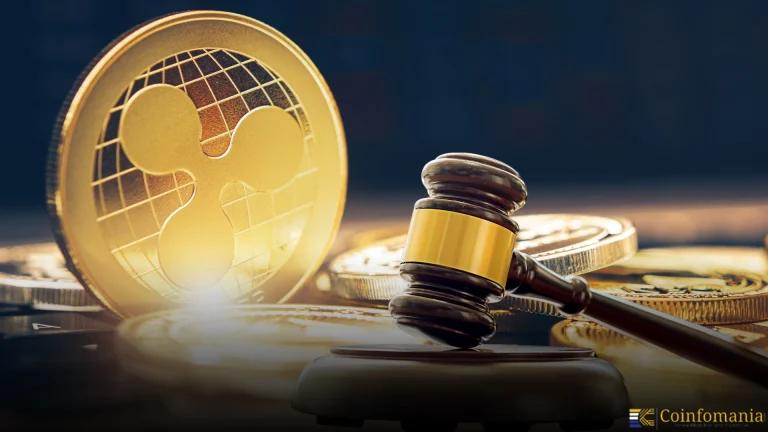Cryptocurrency Regulations in Spain
Crypto has become a safe haven in Spain, which allows trading, mining, and use of cryptocurrencies, but without the status of the latter as a legal tender. Currently there is only the Euro as a legal tender in the country (since 1999). Meanwhile, the country is actively implementing the European Union’s Markets in Crypto-Assets (MiCA) […]

Crypto has become a safe haven in Spain, which allows trading, mining, and use of cryptocurrencies, but without the status of the latter as a legal tender. Currently there is only the Euro as a legal tender in the country (since 1999). Meanwhile, the country is actively implementing the European Union’s Markets in Crypto-Assets (MiCA) regulation in order to be fully enforced by December 2025, by harmonizing a framework across the EU. This way of dealing with this issue represents a compromise between innovation and investor protection, and it makes Spain an attractive target for crypto activities.
Investors and businesses need to follow Spain’s crypto rules to stay legal while building on available market opportunities. A structured regulatory environment makes the crypto system safer through its legal security and it fights fraud better while building trust among users. Spain has two main regulatory bodies to supervise crypto activities: the National Stock Market Commission (CNMV) takes charge of MiCA compliance while the Bank of Spain runs the Virtual Currency Service Provider (VCSP) registration process.
Historical Context
In the first phase, there was no specific legislation on cryptocurrency in Spain, which was under general financial laws but did not accept it as legal tender. Key milestones have been forged along the regulatory path over time.
- Establishment of virtual assets (Royal Decree 7/2021, 28 April 2021) and obligatory registration of VCSP with the Bank of Spain.
- Introducing the LMVSI and laying the basis for MiCA sanctions under Law 6/2023 (March 17, 2023).
- Law 28/2022 (December 21, 2022): Offered tax incentives and regulatory sandboxes to promote blockchain innovation.
- Specific to MiCA, Spain accelerated its implementation of MiCA by December 2025 or 6 months before the default timeline of the EU.
The shift from minimal oversight to an innovation-based compliance structure is the evolution that can be seen in this transition.
Regulatory Framework
Key Regulatory Authorities
- MiCA compliance is overseen by CNMV and is responsible for regulating the crypto-asset service providers (CASPs) and advertising.
- Bank of Spain manages VCSP registration and supervises electronic money and asset-referred tokens under MiCA.
Licensing and Registration Requirements
Registration is mandatory for VCSPs to register with the Bank of Spain and send forms CRIPTO01, CRIPTO03 and CRIPTO05. By 2024, around 100 companies had been registered. Under MiCA:
- They must also have been licensed by December 30, 2024.
- Entities operating in the space market must be licensed by December 30, 2025, with a simplified procedure during the transition.
AML & KYC Requirements
By virtue of Law 10/2010, VCSPs have to report transactions above EUR 30,000 (cross-border), EUR 1,500 (remittances) and EUR 10,000 (cross-border movements) to SEPBALC. The Regulation (EU) 2023/1113 even requires traceability of transfers, including transfers of non-custodial wallets, greater than or equal to EUR 1,000.
Taxation of Cryptocurrency
Progressive income tax is also used to tax crypto transactions.
Profit Range (€)
Tax Rate
Up to 6,000 19%
6,001–50,000 21%
50,001–200,000 23%
200,001–300,000 27%
Over 300,000 28%
Since January 1, 2024, taxpayers must file:
- Form 172 (virtual currency balances)
- Form 173 (transactions)
- Form 721 (holdings abroad > EUR 50,000)
Regulation of ICOs, STOs, and Other Crypto Assets
If deemed to be public offerings, ICOs might be securities laws. Token security is regulated by Law 6/2023 and they include DLT for the issuance and custody of these assets. An exception is that NFTs are usually unregulated, except when categorized as financial instruments.
Spain’s Crypto Policies
Regulatory Approach to Cryptocurrency Usage
Crypto transactions are allowed and, although not recognized legally as legal tender, nowhere is it illegal to use crypto in Spain. MiCA only applies to assets that are decentralized, from Bitcoin to the DeFi aspects, and does not apply to centralized services, for which it seeks to increase regulatory oversight.
Crypto Mining
There are no special limitations for mining, but the general acts are related to energy consumption and tax.
Government-Backed Initiatives
Blockchain is supported by the Bank of Spain, in particular an EURM stablecoin on Ethereum 2.0, issued by MONEI. Spain is a part of the EU projects on digital currency, like a digital euro, and provides regulatory sandboxes under Law 28/2022 for testing innovations.
Penalties for Non-Compliance
For example, in cases involving fraud or money laundering, non-compliance such as unregistered operation or AML violation can become a serious offence that may result in fines, suspensions or even criminal charges.
Spain’s Approach to Crypto Innovation
Regulatory Sandbox
Law 28/2022 creates sandboxes, which provide a controlled environment where blockchain start-ups can test innovations under a period of one year with regulatory supervision.
Crypto Adoption in Businesses
As more people get into crypto, clear regulations are the fuel to more and more industries, which accept cryptocurrencies for doing business.
Blockchain Development
Spain has been supporting blockchain and blockchain projects where they support stablecoin EURM and projects that fall under the EU alignment.
Notable Challenges and Issues
Inconsistencies in Regulation
Spain’s alignment of national and EU laws during MiCA transition (December 2024–2025) may create some in-between disruptions.
Challenges to Enforcement
The anonymous nature of cryptocurrencies makes enforcing AML and KYC very difficult, as it complicates the decentralized nature of the currency and transactions.
Public Perception
Tech-savvy groups support crypto, while old-fashioned sectors and also the media are skeptical but it is getting accepted.
Regulatory Trends and Future Outlook
Recent Developments
A proactive stance is shown by Spain adopting MiCA by December 2025, before the EU’s July 2026 deadline. Robust licensing processes are being prepared by the CNMV and Bank of Spain.
Predictions for the Future
The full implementation of MiCA is expected to be an appeal to more crypto businesses and will help Spain become a greater crypto hub in the EU. Regulation will be investor-focused yet support innovation.
Global Implications
If Spain adopts MiCA early, this could have an impact on its EU neighbours and global markets, making for harmonized standards across the EU, and even allaying some of the fears around cross-border crypto trade.
Conclusion
In Spain, MiCA’s upcoming implementation is backed up by a crypto-friendly yet cautious approach that ensures a balanced environment that supports innovation and security. To survive, investors and businesses must constantly remain compliant with this changing market. As Spain keeps shaping its crypto landscape, keeping up with regulatory changes is essential.
Frequently Asked Questions (FAQs)
1. Is there a license granted for running a crypto exchange in Spain?
Yes. By December 2025, Crypto-asset service providers (CASPs) will have to register with the Bank of Spain and comply with MiCA licensing requirements.
2. Are non-custodial wallets, in which crypto is held, also subject to regulation?
Holding crypto on a non-custodial wallet is not illegal, but transactions over €1,000 now fall under EU traceability for international transfers.
3. How do I prepare crypto tax reports in Spain?
If you have any crypto balances, there is Form 172 (crypto balances), Form 173 (crypto transactions), and Form 721 for foreign-held crypt assets over €50,000.
4. Are crypto to crypto trades taxable in Spain?
Yes. Each swap — meaning exchanging one crypto for another — is considered a taxable event, whether it is a capital gains or losses trigger.
5. Are NFTs regulated in Spain?
NFTs are not regulated unless they qualify under categories of financial instruments or securities, in which case they would come under Law 6/2023.
6. Can foreign companies operate using crypto in Spain?
They must register with the Bank of Spain and abide by MiCA regulations if they want to offer their services to Spanish residents.
7. Is staking/yield farming income taxable?
Yes. Income from staking, lending or interacting with DeFi protocols is subject to Spain’s personal income tax rates.
8. In the case you do not comply with crypto regulations, what are your penalties?
Violating such conditions can bring financial fines, business suspension, and even criminal charges, as well as having no registration or passing AML checks.
9. What’s Spain’s stance on stablecoins such as USDT or EURM?
Stablecoins fall under MiCA. Then there’s MONEI, a Spain-born addition to the crypto ecosystem that is attempting to pilot its own euro-pegged stablecoin (EURM) with the support of the Bank of Spain.
10. What support does Spain give to the innovation sector of cryptocurrency?
To stimulate innovation, Spain has implemented the regulatory sandboxes, tax incentives, and blockchain initiatives, mainly in the Law 28/2022.
Follow us on Google News
Get the latest crypto insights and updates.
Related Posts

Ripple Highlights Custody as Key to $18.9T Tokenized Assets by 2033
Shweta Chakrawarty
Author

Hong Kong SFC Issues New Custody Rules for Crypto Platforms
Shweta Chakrawarty
Author

South Korea and Vietnam eye $150B trade despite Trump tariff
Shweta Chakrawarty
Author